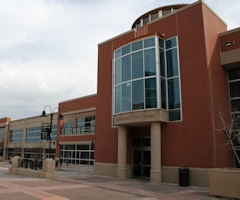Knowledgeable voters are aware of the role special interest campaign contributions play in local elections. Due to their close relationship with the monied special interests, candidates affiliated with the establishment are always able to garner far more money than their independent opponents.
The 2018 de-TABOR election was a classic example. The pro-government Our Lakewood campaign committee raised nearly $30,000 (including $20,000 from public employee groups) or about 12X times as much as the citizen group Save Our Refunds. Even though lawsuits have kept the citizens’ slow growth initiative from the ballot, the special interest group opposing it (Lakewood United for Responsible Growth) raised nearly $150,000 last year.
The City Council races are no different. In 2017, Gifford’s supporters raised 7X times as much as Bieda’s supporters, Harrison’s supporters raised 5X times as much as her independent opponent and even the young newcomer Kyra deGruy’sgroups raised 4X times as much as supporters of Ramey Johnson.
In response to special interest money swamping city elections, voters cried out for efforts to level the campaign playing field. In a vain attempt to address this outcry the City Council recently passed a “reform” of the city’s campaign finance rules. The new rules limit contributions to city council races to $400 (down from the previous rules’ $2,500 limit) and $1,000 to a mayoral race (down from $5,000).
On paper these limits would appear to be an improvement. Unfortunately, the special interests will simply get around these limits through a loophole – the independent expenditure committees. Similar to political action committees these groups have NO LIMITS at all on the amount of money they can raise and spent on behalf of their chosen candidates.
In addition to having no meaningful limits, the new law doesn’t solve the transparency problems. What the special interests will do is create new groups to raise funds from individuals, groups, lobbyists, unions, businesses and development interests. These “independent expenditure” groups then donate to other groups who either spend the money supporting a candidate or donate it to yet another independent expenditure group.
For example, in the last election (2017), the independent expenditure group Lakewood Voter Information Projectspent about $14,200 to support Kyra deGruyin her unsuccessful bid to unseat Ward 1 incumbent Ramey Johnson. Where did they get their money? Much of it came from a marijuana advocacy group called Responsible Lakewood. Where did the Responsible Lakewood group get their money from? Who knows! Probably the marijuana shops.
Another example was the Leadership Lakewoodgroup which raised nearly $60,000to support the establishment Council candidates (Gifford, Sperlingand Harrison). Where did they get $60,000? In addition to the usual contributions from the realtors ($11,000), they received $35,000from a group called Colorado Economic Leadership Fund. Who are they? They are co-located in the same building as the Colorado Bankers Association. According to the Denver Post they receive funding from oil companies and support conservative causes such as opposing Amendment 73.
Another example is the Issues Mobilization Committee. They donated $12,500 to the effort to defeat the citizens’ growth initiative and another $1,000 to the de-TABOR group. Who are they? Again, who knows but it looks like yet another realtor group.
By the time one group donates to another group, the original source of the money becomes sufficiently “laundered” to make transparency meaningless. So, in the end, the recent campaign finance reform is essentially meaningless as special interests launder unlimited amounts of money into groups who will continue to ensure far more money will be spent on behalf of establishment candidates. All this does is allow the establishment candidates to claim the special interest money wasn’t directly contributed to theirofficialcampaigns.
In an interesting footnote to this story, Ward 5 Councilor Dana Gutwein boasted on her Facebook page about her participation in the subcommittee that created the “best” campaign finance rules in the state. Although the “reforms” won’t level the campaign playing field, her Facebook claim did reveal her motivation. She claims the new rules will help witch hunts to track down supporters of the independent newspaper Lakewood Watchdog.
Despite the establishment criticisms of Watchdog’s “exposes” as muck-racking or yellow journalism, Gutwein’s claim ignores the Constitution’s 1stAmendment/free press protection which includes groups who dare criticize elected officials. Watchdog spokesperson Dan Smith observed Gutwein’s mis-use of the term “electioneering communication” is specifically not applicable to Watchdog because the law states “electioneering communication does not include: (I) Any news articles, editorial endorsements, opinion or commentary writings, or letters to the editor printed in a newspaper, magazine, or other periodical not owned or controlled by a candidate or political party, .. “. Since Watchdog is a long-time (since 2011) citizens group not owned/controlled by a candidate or political party the “electioneering” reference is irrelevant.

